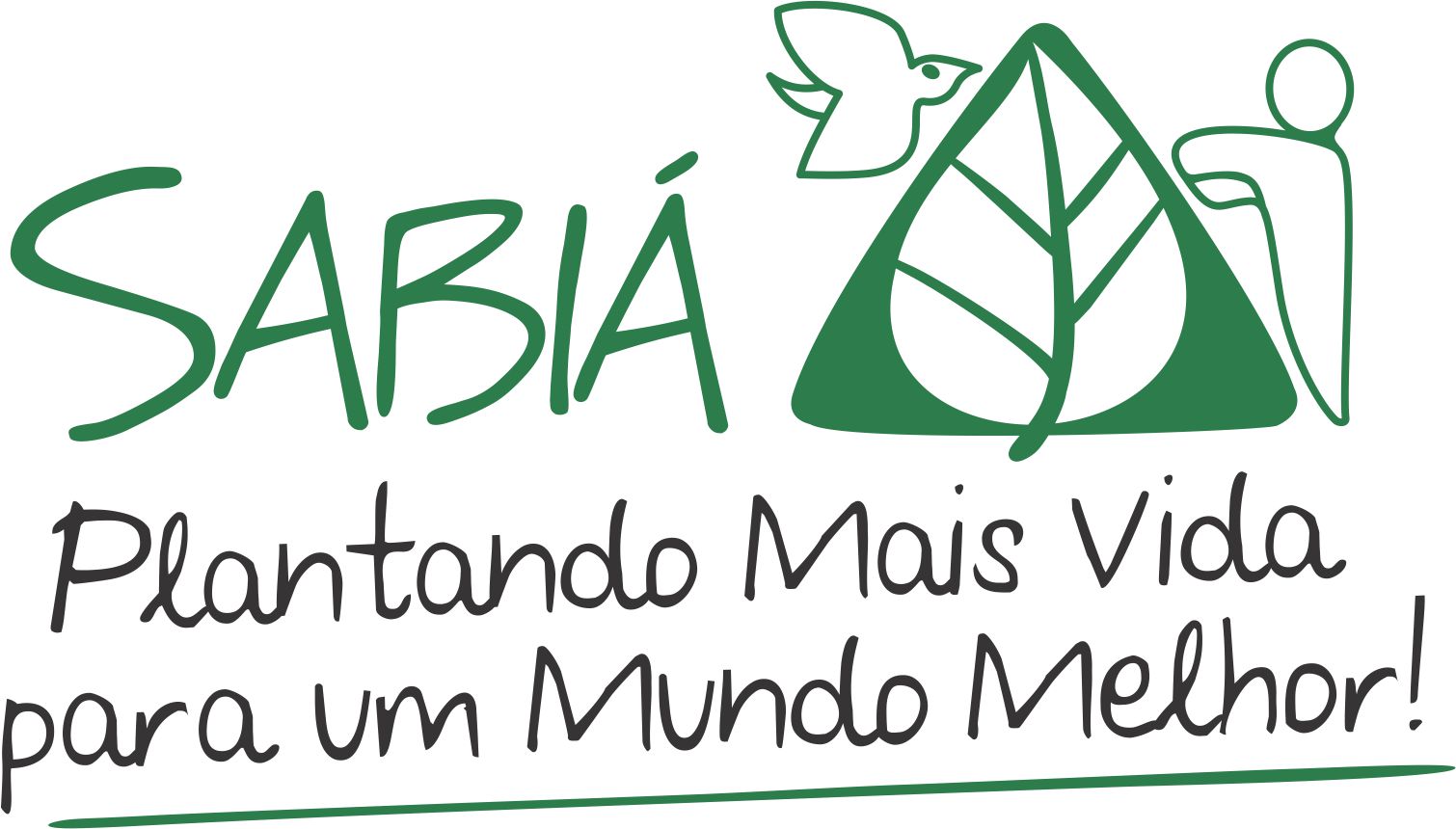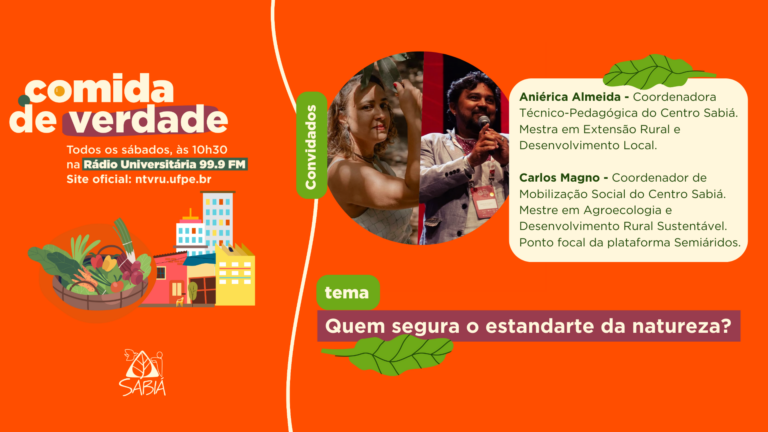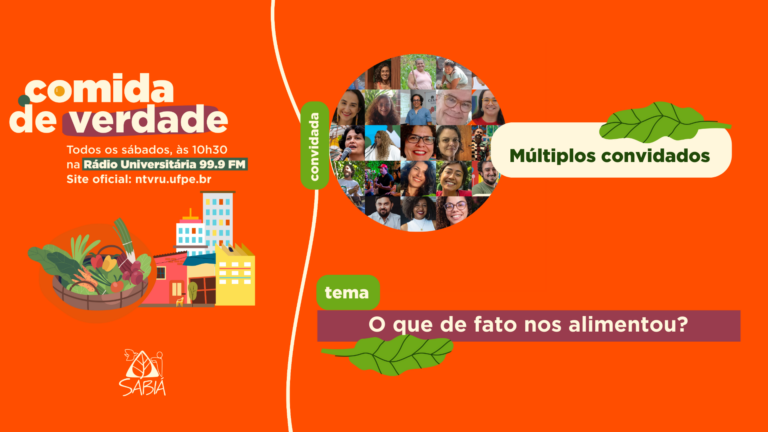Urban agriculture and three years of the Dandara Popular Agroecological Garden
Simone Arimatéia
Agroecology technician and technical advisor for Urban and Peri-urban Agriculture at Centro Sabiá
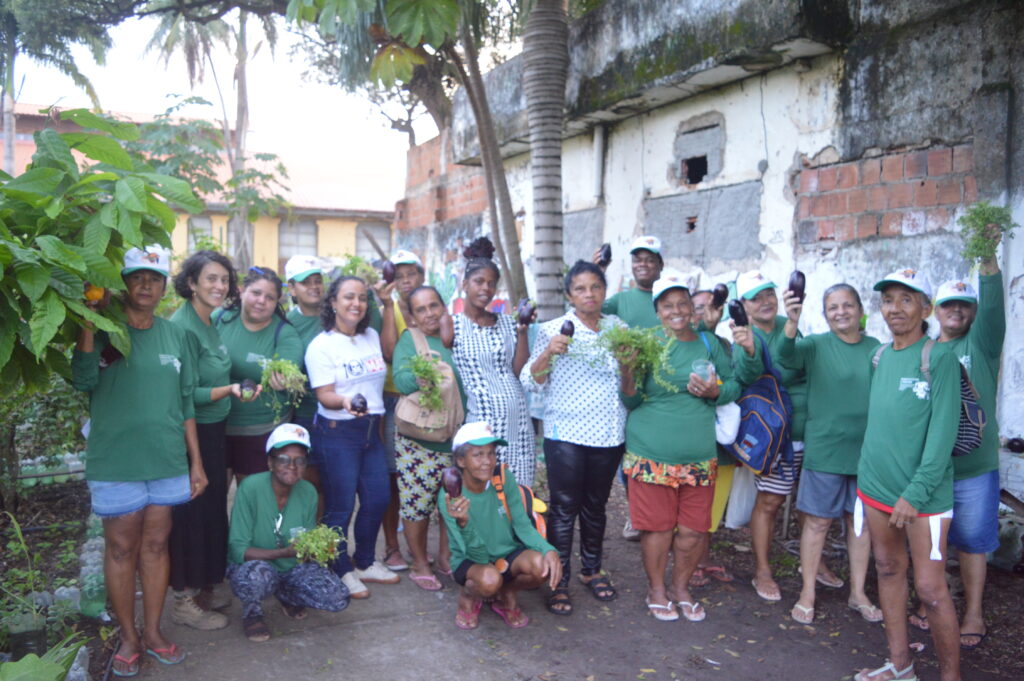
Farming is nothing new; the habit of growing food near one’s home has existed since the time when man stopped being nomadic and began to settle on a piece of land, grow food and domesticate animals. What has changed is the emergence of cities and the reduction of arable land within large urban centers over time.
The lack of space in homes, backyards, an area used for small crops, animal husbandry and collective cooking, has led to changes in families’ eating habits, coupled with the abundant availability of processed and ultra-processed foods sold at a low cost. Fruit-gathering areas are also becoming increasingly scarce due to deforestation and real estate speculation, leaving the population often only with the possibility of buying these fruits.
In general, there are no longer any large green areas in urban centers, there is air pollution from toxic gas emissions, rising temperatures and the disorderly growth of cities. These are some of the factors that alert us to the need to rethink this urban way of life. In this sense, it is worth remembering that it is in the human essence to relate to nature, after all we are part of it, and our survival depends on this relationship.
Living in a big city these days sometimes doesn’t allow us to live in harmony with the environment. It’s common to hear people say that they have never, for example, entered a forest. This lack of contact with nature puts us in a place of illness, where we can see that as a society we are living badly, without time, anxious, insomniac, obese and malnourished. According to data from the IBGE 2023 census, five percent of Brazilian cities account for more than half of the country’s population. This is a worrying statistic that points to the growing concentration of the population in small areas, and areas where there is almost no food production. In other words, food is basically linked to buying food. People in situations of vulnerability and/or unemployment will find it more difficult to access food.
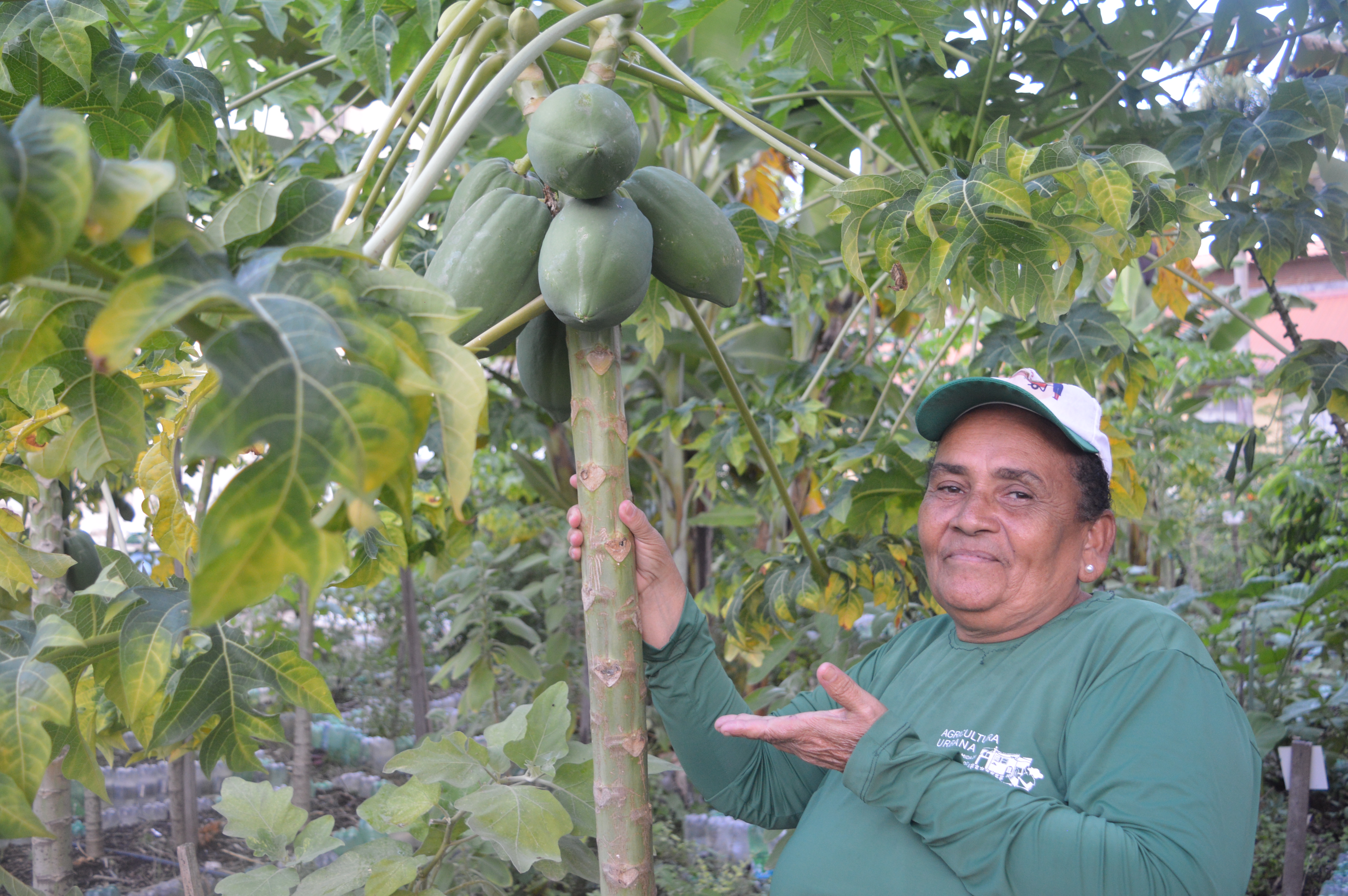
Trying to go against this backdrop, we celebrated the three-year anniversary of the Dandara Popular Agroecological Garden on August 25. This space emerged in the midst of the COVID-19 pandemic with the desire to create an open place of contact with nature in the middle of the city and to produce food without poison, in the face of the difficult situation in which the population of the outskirts of Peixinhos found themselves with the increase in hunger.
The Horta Popular Agroecológica Dandara is located in Peixinhos/Recife and has a group of around 20 urban farmers who take part in weekly joint efforts to care for the space and take turns watering it every day. These are women who are also fighting for housing and access to rights. The harvests are shared out in joint efforts and there are also workshops and conversation circles for building knowledge, exchanging knowledge and political advocacy. This work brings nature closer to the city, promotes physical and mental health and self-organization among women.
It is a joy for us, who are part of the Sabiá Center, to follow the construction and evolution of this space of struggle and resistance, which over these three years has produced not only poison-free food, but also health and dialogue, building partnerships between researchers, teachers, students, ngos and groups from the neighborhood itself.
Like Dandara, other urban vegetable garden initiatives can be found in the RMR and in various cities across the country. Urban agriculture is a real possibility for creating a microclimate in urban centers, composting, water drainage points, places where you plant and harvest health, good living, collective actions and welcoming people.
Nothing found.

